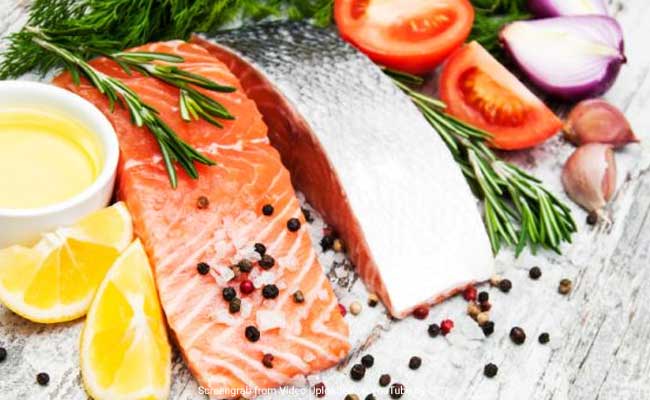If you are planning to have a baby then try including seafood to your diet as couples who eat seafood tend to be more sexually active and get pregnant faster than other couples trying to conceive, a new study suggests.

Seafood consuming couples tend to more sexually active and conceive faster
HIGHLIGHTS
- Seafood consuming couples are more sexually active than others
- They also tend to conceive a baby faster than others
- Seafood is an important source of protein and other nutrients for women
If you are planning to have a baby then try including seafood to your diet as couples who eat seafood tend to be more sexually active and get pregnant faster than other couples trying to conceive, a new study suggests. The study, published in the Journal of Clinical Endocrinology and Metabolism, found that, among the participants, 92 per cent of couples who ate seafood more than twice a week were pregnant at the end of one year, compared to 79 per cent among couples consuming less seafood.
"Our study suggests seafood can have many reproductive benefits, including shorter time to pregnancy and more frequent sexual activity," said co-author Audrey Gaskins from the Harvard T.H. Chan School of Public Health in Boston.
"Our study found that couples who consume more than two servings of seafood per week while trying to get pregnant, had a significantly higher frequency of sexual intercourse and shorter time to pregnancy," Gaskins added.
For the study, the researchers examined 500 couples to determine the relationship between seafood intake and time to pregnancy.
The participants recorded their seafood intake and sexual activity in daily journals.
The association between seafood and faster time to pregnancy was not completely explained by more frequent sexual activity, suggesting other biological factors were at play. These could include effects on semen quality, ovulation or embryo quality, the researcher said.
Seafood is an important source of protein and other nutrients for women who are or may become pregnant, but concerns about mercury have led some women to avoid fish when trying to conceive.
Earlier, a study, published in journal Molecular Autism, found no evidence to support claims that mercury in fish is linked to the development of autism or autistic traits in newborns.
"Our results stress the importance of not only female but also male diet on time to pregnancy and suggest that both partners should be incorporating more seafood into their diets for the maximum fertility benefit," Gaskins noted.
(This story has not been edited by NDTV staff and is auto-generated from a syndicated feed.)
DoctorNDTV is the one stop site for all your health needs providing the most credible health information, health news and tips with expert advice on healthy living, diet plans, informative videos etc. You can get the most relevant and accurate info you need about health problems like diabetes, cancer, pregnancy, HIV and AIDS, weight loss and many other lifestyle diseases. We have a panel of over 350 experts who help us develop content by giving their valuable inputs and bringing to us the latest in the world of healthcare.














